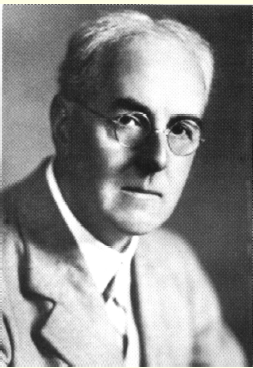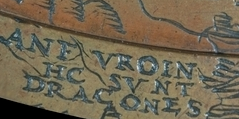Related Research Articles

Quintus Horatius Flaccus, commonly known in the English-speaking world as Horace, was the leading Roman lyric poet during the time of Augustus. The rhetorician Quintilian regarded his Odes as just about the only Latin lyrics worth reading: "He can be lofty sometimes, yet he is also full of charm and grace, versatile in his figures, and felicitously daring in his choice of words."

Jonathan Swift was an Anglo-Irish satirist, author, essayist, political pamphleteer, poet, and Anglican cleric who became Dean of St Patrick's Cathedral, Dublin, hence his common sobriquet, "Dean Swift".

Publius Vergilius Maro, usually called Virgil or Vergil in English, was an ancient Roman poet of the Augustan period. He composed three of the most famous poems in Latin literature: the Eclogues, the Georgics, and the epic Aeneid. A number of minor poems, collected in the Appendix Vergiliana, were attributed to him in ancient times, but modern scholars consider his authorship of these poems to be dubious.

Publius Ovidius Naso, known in English as Ovid, was a Roman poet who lived during the reign of Augustus. He was a younger contemporary of Virgil and Horace, with whom he is often ranked as one of the three canonical poets of Latin literature. The Imperial scholar Quintilian considered him the last of the Latin love elegists. Although Ovid enjoyed enormous popularity during his lifetime, the emperor Augustus exiled him to Tomis, the capital of the newly-organised province of Moesia, on the Black Sea, where he remained for the last nine or ten years of his life. Ovid himself attributed his banishment to a "poem and a mistake", but his reluctance to disclose specifics has resulted in much speculation among scholars.

Classical Latin is the form of Literary Latin recognized as a literary standard by writers of the late Roman Republic and early Roman Empire. It was used from 75 BC to the 3rd century AD, when it developed into Late Latin. In some later periods, it was regarded as good or proper Latin, with following versions viewed as debased, degenerate, or corrupted. The word Latin is now understood by default to mean "Classical Latin"; for example, modern Latin textbooks almost exclusively teach Classical Latin.
Ad nauseam is a Latin term for an argument or other discussion that has continued to the point of nausea. For example, "this has been discussed ad nauseam" indicates that the topic has been discussed extensively and those involved have grown sick of it. The fallacy of dragging the conversation to an ad nauseam state in order to then assert one's position as correct due to it not having been contradicted is also called argumentum ad infinitum and argument from repetition.

A caesura, also written cæsura and cesura, is a metrical pause or break in a verse where one phrase ends and another phrase begins. It may be expressed by a comma (,), a tick (✓), or two lines, either slashed (//) or upright (||). In time value, this break may vary between the slightest perception of silence all the way up to a full pause.

Lewis Fry Richardson, FRS was an English mathematician, physicist, meteorologist, psychologist, and pacifist who pioneered modern mathematical techniques of weather forecasting, and the application of similar techniques to studying the causes of wars and how to prevent them. He is also noted for his pioneering work concerning fractals and a method for solving a system of linear equations known as modified Richardson iteration.
In Latin literature, Augustan poetry is the poetry that flourished during the reign of Caesar Augustus as Emperor of Rome, most notably including the works of Virgil, Horace, and Ovid. In English literature, Augustan poetry is a branch of Augustan literature, and refers to the poetry of the 18th century, specifically the first half of the century. The term comes most originally from a term that George I had used for himself. He saw himself as an Augustus. Therefore, the British poets picked up that term as a way of referring to their endeavours, for it fit in another respect: 18th-century English poetry was political, satirical, and marked by the central philosophical problem of whether the individual or society took precedence as the subject of the verse.

A hyperparasite, also known as a metaparasite, is a parasite whose host, often an insect, is also a parasite, often specifically a parasitoid. Hyperparasites are found mainly among the wasp-waisted Apocrita within the Hymenoptera, and in two other insect orders, the Diptera and Coleoptera (beetles). Seventeen families in Hymenoptera and a few species of Diptera and Coleoptera are hyperparasitic. Hyperparasitism developed from primary parasitism, which evolved in the Jurassic period in the Hymenoptera. Hyperparasitism intrigues entomologists because of its multidisciplinary relationship to evolution, ecology, behavior, biological control, taxonomy, and mathematical models.

"Here be dragons" means dangerous or unexplored territories, in imitation of a medieval practice of putting illustrations of dragons, sea monsters and other mythological creatures on uncharted areas of maps where potential dangers were thought to exist.

The rule of three is a writing principle that suggests that a trio of entities such as events or characters is more humorous, satisfying, or effective than other numbers. The audience of this form of text is also thereby more likely to remember the information conveyed because having three entities combines both brevity and rhythm with having the smallest amount of information to create a pattern.
Leonard Welsted was an English poet and "dunce" in Alexander Pope's writings. Welsted was an accomplished writer who composed in a relaxed, light hearted vein. He was associated with Whig party political figures in his later years, but he was tory earlier, and, in the age of patronage, this seems to have been more out of financial need than anything else.

Inspiration is an unconscious burst of creativity in a literary, musical, or visual art and other artistic endeavours. The concept has origins in both Hellenism and Hebraism. The Greeks believed that inspiration or "enthusiasm" came from the muses, as well as the gods Apollo and Dionysus. Similarly, in the Ancient Norse religions, inspiration derives from the gods, such as Odin. Inspiration is also a divine matter in Hebrew poetics. In the Book of Amos the prophet speaks of being overwhelmed by God's voice and compelled to speak. In Christianity, inspiration is a gift of the Holy Spirit.
"Siphonaptera" is a name used to refer to the following rhyme by Augustus De Morgan :
Nationality words link to articles with information on the nation's poetry or literature.
Nationality words link to articles with information on the nation's poetry or literature.
Nationality words link to articles with information on the nation's poetry or literature.
"The Flea" is an erotic metaphysical poem by John Donne (1572–1631). The exact date of its composition is unknown, but it is probable that Donne wrote this poem in the 1590s when he was a young law student at Lincoln's Inn, before he became a respected religious figure as Dean of St Paul's Cathedral. The poem uses the conceit of a flea, which has sucked blood from the male speaker and his female lover, to serve as an extended metaphor for the relationship between them. The speaker tries to convince a lady to sleep with him, arguing that if their blood mingling in the flea is innocent, then sexual mingling would also be innocent. His argument hinges on the belief that bodily fluids mix during sexual intercourse.
A lekythion or lecythion, in classical Greek and Latin poetry, is a metric pattern (colon) defined by a sequence of seven alternating long and short syllables at the end of a verse (—u—x—u—). In classical grammatical terminology it can be described as a trochaic dimeter catalectic, i.e. a combination of two groups of two trochees each (—u—x), with the second of these groups lacking its final syllable; or as a trochaic hepthemimer, i.e. a trochaic sequence of seven half-feet. A lekythion can appear in several different metric contexts in different types of poetry, either alone as a verse or as the second of two cola following a caesura. A frequent type of occurrence in Greek drama is in lines of iambic trimeter, the most frequent metre used in spoken dialogue, i.e. lines of the type x—u—|x—u—|x—u—. These lines may have a metric caesura after the first five syllables, with the remaining line thus resulting in a lekythion group.
References
- ↑ Swift, Jonathan (1733). On Poetry: a Rhapsody . Retrieved 14 December 2017.
- ↑ De Morgan, Augustus (1915). Smith, David Eugene (ed.). A Budget of Paradoxes. Vol. II (2nd ed.). p. 191.